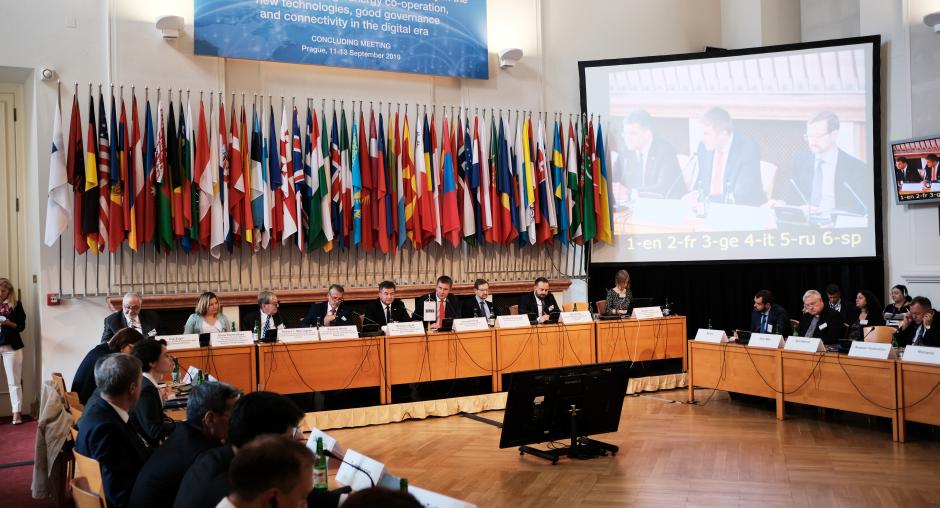How we co-operate on energy, deal with new technologies, increase connectivity in the digital era – focus of OSCE Forum in Prague

PRAGUE, 11 September 2019 – New and emerging technologies in relation to energy security, good governance and connectivity in the digital era, are the focus of 27th OSCE Economic and Environmental Forum which opened today in Prague.
For the next three days, senior government officials, experts from academia and NGOs and representatives of international organizations will discuss how the participating States are co-operating on energy, how they deal with new technologies, how they strive for good governance and how they can capitalize on connectivity in the digital era.
This year, with the support of the Slovak Chair, the Forum is bringing the OSCE dialogue on opportunities and challenges in technology to a new level, not only in the economic and environmental dimension but across the comprehensive security portfolio.
“When thinking of the world’s largest regional security organization, economic and environment issues might not immediately jump to mind,” said OSCE Chairperson-in Office and Minister for Foreign and European Affairs of Slovakia Miroslav Lajčák. “But, the fact is, we no longer live in a world where we can afford to work in silos. What is going on in our economies and our environment has a direct impact on our security, and, in many cases, our fundamental rights and freedoms.”
The Forum’s main objective is to stimulate political dialogue and generate recommendations for OSCE participating States in dealing with economic and environmental challenges.
“No one region, no one government, no one country has the secret recipe to cope with the digital transformation,” said Lajčák. “None of us has found the elusive balance – the way to harness the benefits of technology, while mitigating and preventing its risks and dangers.”
Secretary General Thomas Greminger said that the OSCE is embracing the technology-security nexus in a proactive way. “OSCE confidence-building measure to reduce the risks of conflict stemming from the use of ICTs remains a flagship OSCE initiative. We are successfully integrating technology into our field work, most prominently in Ukraine,” he said.
Energy co-operation is one of the major priorities of the Slovak Chair. Participants discussed the merits of strengthening energy co-operation to increase energy security and sustainability.
They acknowledged that responding to the multiple requirement of the energy transition to renewable energy sources, while considering economic efficiency and environmental sustainability, is an ongoing challenge for all OSCE participating States. By seeking common responses, participating States can help seize opportunities for enhancing energy security across the OSCE region.
“The ongoing energy transition is not just a shift from one set of fuels to another, but involves a much deeper transformation of the world energy system, and it will have major social, economic, environmental and political implications that go well beyond the energy sector,” said Greminger. “Working together is a key.”
